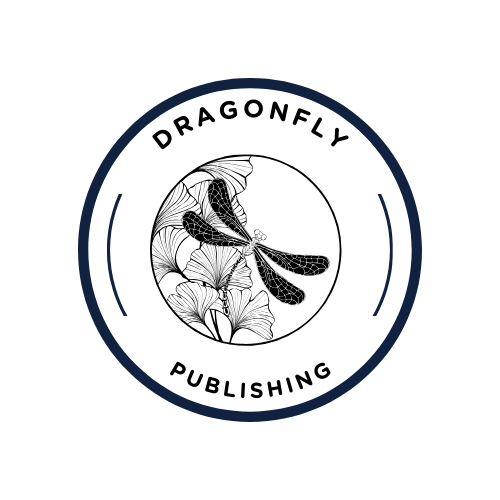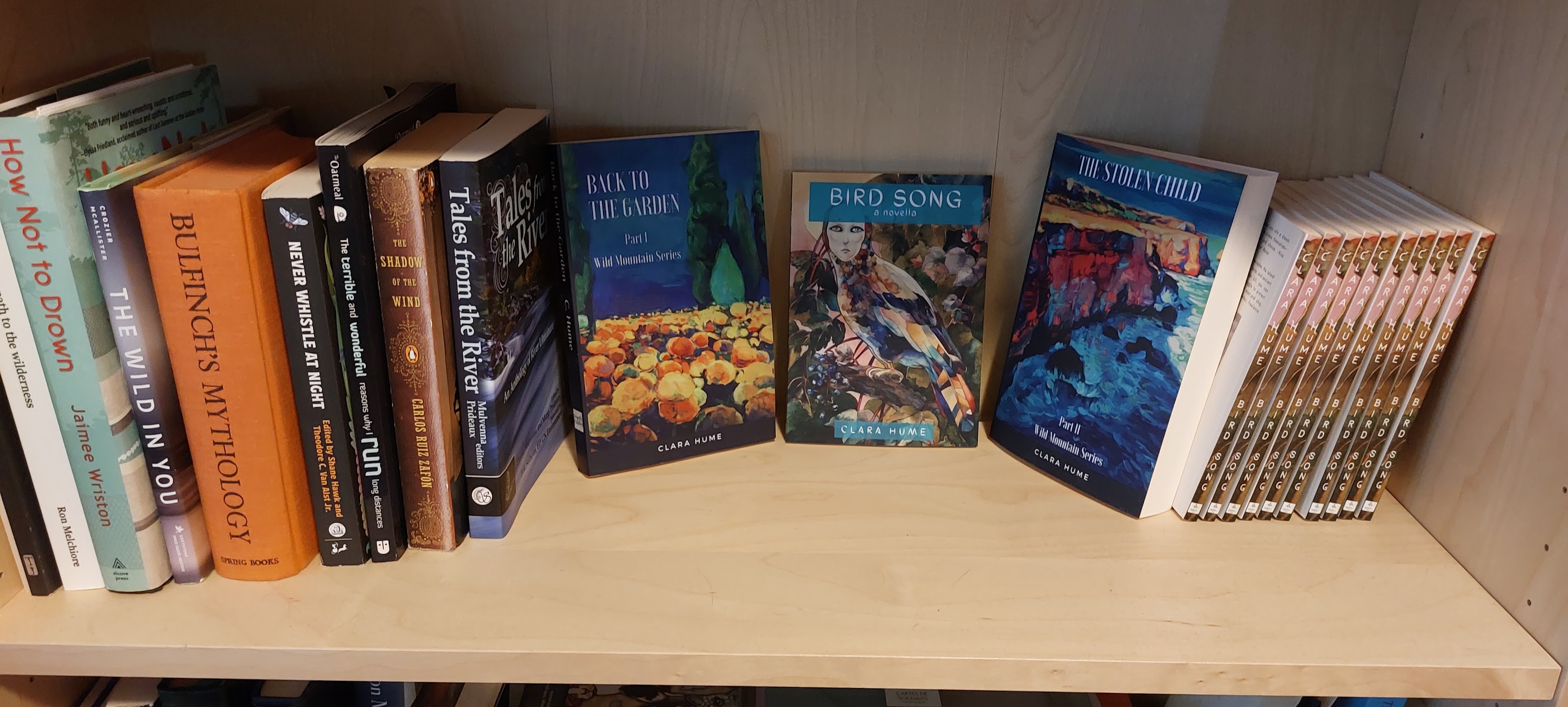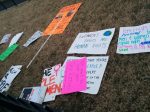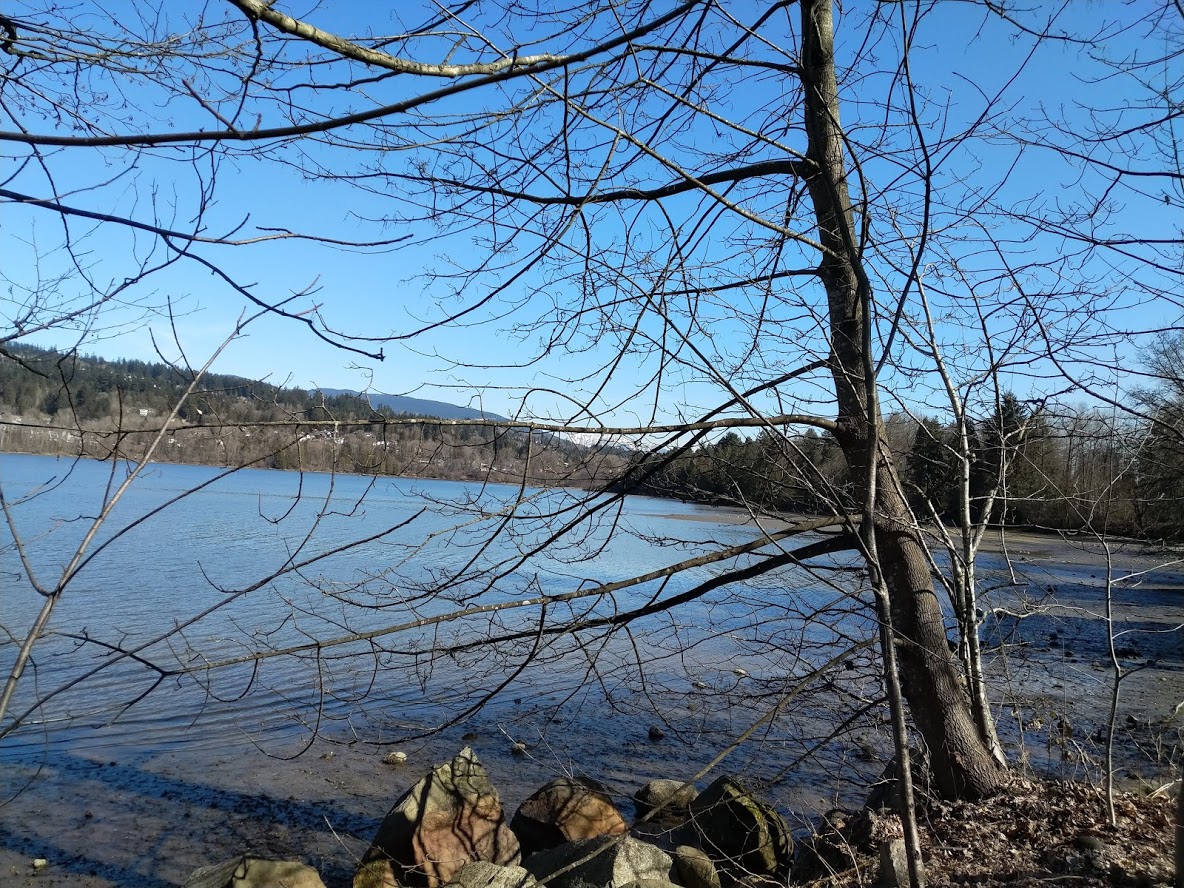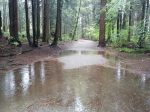I’ve been a writer since I learned to write. And if I’m not writing, I must find some other creative thing to do. I’m not very good at painting or drawing, and I don’t play any musical instrument proficiently. The older I get, I realize that my hand-eye coordination is getting worse. Some of that is due to my eyesight diminishing. My mother-in-law tried to teach me to knit a few years ago, and I was so bad that we were literally rolling on the floor with laughter. How did I never learn how to sew, quilt, knit, crochet, anything like that? My mother, quintessential mom incarnate, did all those things perfectly. I made a pair of overalls one year at school, so I can sew some, but not creatively, as with quilts. Maybe I could take up quilting though. It’s always been an interest. Anyway, I’ve never been great at most creative adventures, possibly even writing, even though my first novel, Back to the Garden, sold well and was well-reviewed and is nowadays mentioned in a few academic books. My books since then have been very meh. I just don’t have the time or money to market them myself and am avoidant of the big social media platforms whose policies are terrible. But, in the end, it’s okay. I never set out to be a novelist as a career. I just like to write, and that, alone, fulfills one part of my creative side.
So, even the one thing I’ve done regularly my entire life—writing—is waning as far as completing polished novels. The thing is, I’ve been realizing lately that my memory is showing the first signs of going. It’s not a surprise. My mother and her two sisters (one now deceased) have Alzheimer’s. I don’t think it’s necessarily a hereditary disease, though genetic variants can increase or reduce the risk. I am probably hyper-aware of the issues due to the knowledge that the beautiful, sweet, wonderful women I’ve seen go through this were and are independently strong but also in denial. One of my cousins asked me not too long ago, “What if, you know, we get it too? What would you do?” I answered that I would accept it in order to not make things difficult for those around me. I am still young enough to not worry much yet. I’ve had one memory test at my doctor, and while I passed the test, she did see some signs and said to come back in April. This year. I still need to make an appointment.
I’ve noticed a tiredness that happens the older I get. I mean, I still jog, row, and walk, though haven’t done these I things in a month due to a) an IT band injury in my left leg and b) an ulnar nerve injury in my left arm. Things are always going crazy on the left side of my body. However, we’re visiting family soon, which will involve hiking, swimming, and more. But, every day I’m more tired than usual. I’ve started taking the occasional nap. I remember my dad doing these 20-minute naps every day after work. I am getting that way too. But my mind feels hazy sometimes. It’s as though I can feel my synapses losing connection and breaking apart like hands letting go of each other. It’s like being in a lake swimming and you try to recall where the pier is but just have a foggy idea that it’s over there somewhere and you’re content just to let your body float and be serene as you allow yourself the peace of forgetting exact locations, words, whatever. Ignorant bliss, maybe. It’s a drifting away of memory, a tiredness in your brain to connect to the usual things. It doesn’t happen all the time, but it happens enough.
So, this suspension of connection, which isn’t really a disconnection from reality but from ice-clear memory, is happening more often. I can feel it. And this kind of thing is awful if you’re trying to write a coherent novel. I’ve realize I need to organize names, actions, places, and so forth in a spreadsheet so that I can constantly remember who, what, when, where, and why. Detailed organization like this is good advice for any writer, but now I feel compelled to keep track; it’s necessary if I’m ever to write another story. And this fear that I can’t is also due to my last novel needing a professional editor (which, I know, is another must) as well as the fact I made an increased amount of mistakes when writing. I’ve been afraid to try again. I’ve also been having a harder time reading novels, which has been one of my favorite things to do since a young age, because I have trouble following along. I remember when my mother stopped reading novels; she simply said, “things stopped making sense.” At that time, she was still much older than I am now, but my brain has trouble assembling logic in novels, and it wears me out trying. I find that the writer must be logical with explanation…no huge chapters where I feel like I’ve been pushing a cart around the grocery store for hours and remembered the peaches and the plastic wrap but forgot everything else between the time I walked in the market door and wandered the aisles, with each minute growing more uncertain. It’s kind of like the lack of logic in a dream, where bits and pieces might make sense, but the whole picture is like a blue sky where other unreachable objects are floating around, unattached to meaning, and then start dissolving. Book reading is often like this for me.
However, I was recently exhilarated as my book club read in August is Liz Moore’s God of the Woods, a book I began early and am already 34% in. Thanks, Liz Moore, for creating a book that is organized well so that I can make sense of it and pick up on all the connections. It’s organized but also full of flashbacks, symbolism, mystery, and suspense. So, sometimes, my brain works better than it does at other times. Also, thanks to a recent day off (Inspo day), I have been more inspired and creative than usual. I’ve vowed to use November for NaNoWriMo and start another novel, which I think may include some aspects of three other novels I’ve started in the past few years. This one will be about a young woman living in the Eastern Kentucky Appalachian forest and mountains. I feel I must write this before I die; it’s an imaginary story inspired by my mother’s family and my own memories of constantly visiting the area between birth and age 13. The vibes I got from that area were complicated. There was a great side: fun with cousins, climbing hills and exploring the hollers, the fortunate aspects of having a loving family and feeling safe, and…oh my god, the southern food. But there was also the scary side: wild dogs in the hills, strange guys looking at us sometimes, abject poverty manifesting in broken down shacks and the most toothless, skinny old people sitting on front porches, the lonely echo of trucks going down the highway at night, the sewer creek, the imaginary legends of witches (thanks to my older cousin believing them and also scaring us with tales), and just an entirely different life than where I lived. Things like an older place in time, my mamaw getting baptized in a creek, just like in O Brother Where Art Though, or, when I was very young and my mamaw and papaw had very little indoor plumbing and we had to use an outhouse. There was a certain mystery and suspension of belief when we went back there. But, I noticed that Liz Moore, in her novel, exposed similar joys and fears when talking about youth at a summer camp, and a lot of that is just due to the way our young minds process new people, places, and situations as we’re introduced to them. Whether it’s being nervous about fitting in or finding romance. I’d forgotten these naive feelings, the inchoate fears involved with what I now think of as simple life things, only because I’m old enough to have actual experience to hold onto.
It’s the inchoate fears I also want to tap into with my newest novel: as adults, sometimes we come across new things that we have no experience in. I also love weird horror, like Alex Garland’s movie Men, Jeff VanderMeer’s Annihilation, and Robert Eggers The Witch. So I might try to write some horror into this novel. Sometimes, the weird, or any horror, are the unknowns, the fears, the mysteries of life that you cannot explain.
Anyway, as I’m writing this, I feel tired. I am working noon to 8 pm today (due to me training others at 7 tonight), and I appreciate my job being flexible like that. It’s not often I work late hours. Having free mornings can be awesome too, though usually I’m done by 4 and out the door. Sometimes when I’m working and it becomes dark out, it reminds me of Dad tutoring my brother John and me at the church library on Tuesday nights. He tutored us in math. It’s a cherished memory. Usually our curfews were to “be in by dark,” but those nights were dark outsidethe library windows, and it felt sacred, just Dad, my brother, and me, in the whole building by ourselves, and in the library were the cozy smells of polish, wood, and books. It was a cozy mood. Dad was also a great teacher. I feel the same sort of ambience if I do work in the evening occasionally.
Weekends are great for relaxation and work in the meadow. This weekend, I puttered in the garden each day, and then on Saturday night we had another bonfire (second weekend in a row). We had neighbors and my manager over. It was pleasant. We had food and wine, and our neighbors brought over wonderful sour cream-onion-cheese dip and a bottle of blackberry wine that they make from blackberries in their forested meadow. Before it got dark, Morgan and one of our neighbors were walking around our meadow and saw a porcupine. We sat outside until just after 10:00 pm, watching the stars come out and having laughs. These bonfires have been known to go until 1:00 am at times, but usually only if the bourbon comes out and I make everyone one or more Kentucky Mules with fresh mint from the garden. But I was ready to come in once people started leaving. I thought I might stay up a while, and just relax after a day of running around all day and evening, but we went to bed almost straight away. Are my wilder days over?
